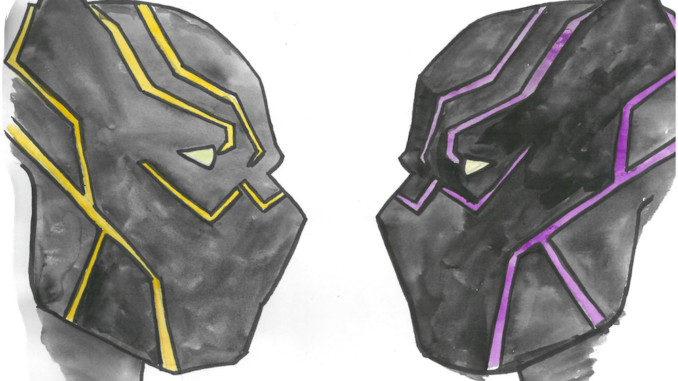
By Ray Freedman
Marvel films have become a tiresome routine at the movies. Each one has the same story arc and, despite having different directors, is filmed in the same visual style. The Marvel Cinematic Universe has essentially become a large-scale television series whose platform is the silver screen and you must pay for each episode. It is a great business model. Yet filmmakers who bravely take on a Marvel job are faced with a difficult prospect: they must find a way to portray and express their own artistry within the confines of the Marvel machine. No Marvel film has done that better than “Black Panther.”
Ryan Coogler directed a film that seems to have, in some way, transcended the episodic routine. Although most Marvel films have struggled with the concept of a “villain,” Erik Killmonger, the antagonist played by Michael B. Jordan, is the heart of the film. As a young boy abandoned and betrayed by his ancestors who has grown up with anger and violence, Erik embodies why Wakanda, the fictional country where the film takes place, should do more to help others around the world. His motives register emotionally with the audience, and in some ways I even found myself agreeing with him. This creates a sincere dramatic tension that is all too absent in “hero” films. Although we all know the villain must be defeated in the end, Erik compellingly changes the hero’s character for the better. T’Challa (Chadwick Boseman) knows he must stop Killmonger, but he feels deeply for him, and ultimately becomes a better king because of him.
The sincerity toward the villain pervades the entire film. Coogler depicts each supporting character with singularity and attention. Fast-paced action films often suffer from characters feeling like props for the hero and main characters, which is not true with “Black Panther.” At one point, T’challa accepts challenges for his throne in front of all the Wakandan tribes. The scene depicts the identity of each tribe, brilliantly conveying their personalities and diverse culture of Wakanda without needing to tell us all about it.
Being the first major blockbuster in this era of superhero movies to feature a mostly black cast, the film has garnered hype since its announcement, but it has surpassed all expectations. “Black Panther” topped the pre-sale numbers of any other Marvel film, and ranks number four on Fandango’s all-time presale statistics. Added to that, it has become Marvel’s biggest opening week grosser.
“Black Panther” uses the Marvel Universe as a platform rather than a limitation. After a certain point, I did not care that it was a superhero movie. Movies like “Guardians of the Galaxy,” “Iron Man” and “Captain America” all constantly remind you that they are superhero films — that they fit into the Marvel series. With “Black Panther,” Coogler and all the filmmakers behind it do not have to do that, and they created the most cohesive Marvel film to date. The story stays in Wakanda, and does not distract itself. Audiences leave the theater with love and admiration for Wakanda. Fictional as it is, that is what good movies do: you leave feeling a certain sense of pride toward the experience. Wakanda may save the Avengers in their fight against Thanos (with all that vibranium in the mountains), but it may very well have saved Marvel’s series as a whole.
Subscribe to the Mossy Log Newsletter
Stay up to date with the goings-on at Lewis & Clark! Get the top stories or your favorite section delivered to your inbox whenever we release a new issue.

Leave a Reply